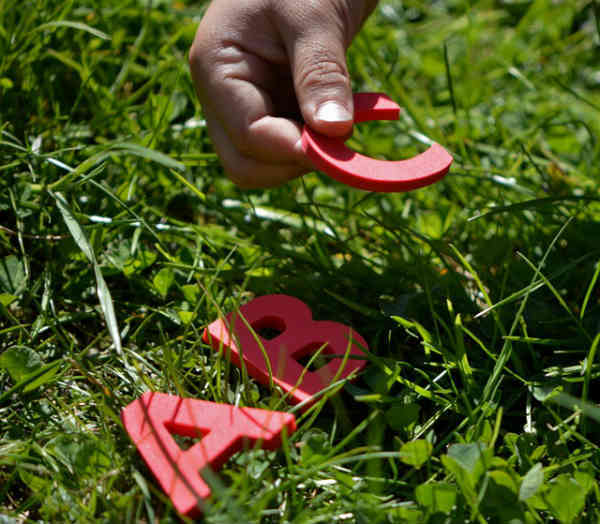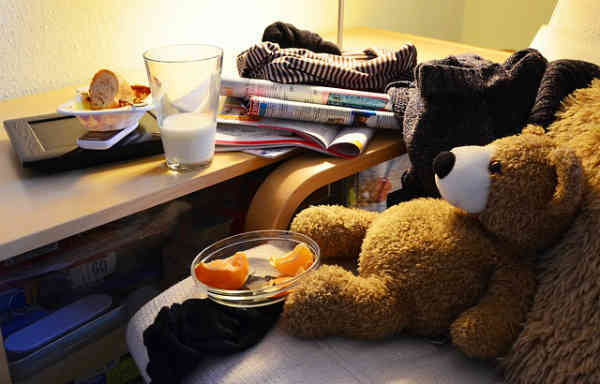Many parents worry whether their children will be successful. One reason this is such a common concern is because we each have our own unique definition of success. Some adults recognize it as a prestigious job, family, status or possessions such as homes, cars and jewelry. Others use less tangible barometers such as coping with disappointment or leaving a legacy.
One of the joys of working as a certified parenting coach is connecting with people all over the world and discovering that parenting is a great equalizer. I am frequently presented with the following concerns from parents, regardless of country of origin, income level or personal accomplishments:

Myth #1 — If my child doesn’t do well in school s/he will never have a good job.
Many parents believe that academic performance dictates how successful their child will be as a grown up. While education is important, it is not the only influencer in an adult’s “life work”.
Often people move through several careers before they find one that suits them. It is not unusual for adults to have a “mid-life crisis” and realize the work they’ve been doing is antithetical to their soul’s mission.
Depending on where you live, your child may not have access to the best formal education. Some children are self-taught, spending hours reading books from a library or listening to elders share stories. Life is a series of teachable moments and children are constantly learning.

According to Harvard professor Howard Gardner, who identified 8 types of intelligences, “Most intelligence tests look at language or logic or both - those are just two of the intelligences. The other six are musical, spatial, bodily/kinesthetic, interpersonal, intrapersonal, and naturalist.”
More and more research is indicating that emotional intelligence plays a greater role in personal and professional achievement than does scoring high on standardized tests.
Myth #2 — If my child doesn’t learn responsibility now s/he never will
.

“If my daughter doesn’t learn to clean her room now she will be a slob forever!”
So often parents worry that a child’s current way of being is reflective of what’s to come next. “My son leaves his things all over the house, when will he learn that I’m not his maid?”
While these concerns are legitimate, they fail to acknowledge that as children grow they move through natural stages of development.
Children under 5 do not “see” a mess the same way adults do. When you ask your pre-schooler to put his toys away, he thinks he has done what you’ve asked by putting one car back on the shelf.
Your teenage daughter may not have yet developed an appreciation for the clothing you worked so hard to purchase for her, so leaving them in a pile on the floor does not feel like a disrespectful act.
When children discover the inner satisfaction of being responsible and contributing to a household’s smooth operating, they feel wonderful! Many children can learn to delight in doing chores and feel the pleasure of helping out.
It is rare that a child or adult who is chastised, guilted or threatened into helping will feel authentically motivated to do it on their own.
Rather than demanding they learn to be responsible now, model what enjoyable responsibility looks like and let them join in when they feel inspired.
Express appreciation for their efforts. This is where the seed of authentic cooperation and responsibility is planted.
Myth #3 — A child who only has one friend and does not show interest in group activities will be sad and lonely.

Entrepreneur, author and motivational speaker Jim Rohn said, “You are the average of the five people you spend the most time with.”
Your child may choose to have one or two best friend relationships rather than have lots of friends. Children with siblings may want to spend time with each other. Some young children prefer imaginary friends to “real” friends.
Read also: 5 Types of Friends Worth Keeping.
From the age of four, I had one “best friend” who thirty years later is still one of my most trusted confidants and closest allies.
Having many friends is not indicative of social prowess or “likability.” If your child has one or two friends of high integrity rather than lots of friends who are immature, chances are greater that the small circle will be a more positive influence on your child.
Some children are clearly “old souls” and from the time they are young seem to identify with self-aware people and prefer not to engage in childish activities or behaviors.
Their happiness and success may look different from others; in fact they are often more in alignment with themselves and the world than their seemingly outgoing peers.
How do you define success for yourself? This will impact the way you judge your child's success.

Personally, I interpret success as authentic happiness.
Authentic happiness happens in daily moments and is not reserved for expensive, exotic trips or a check list of approved social accomplishments.
When we impose our version of success onto a child the only way the child can please us is by fitting into our definition. Some adults drive themselves into financial, emotional and physical exhaustion as they try to get approval and recognition from a parent that they have become a 'success.'
When parents buy into these three myths they hinder their own ability to be happy in the moment and give the message that there is something wrong with their child. This creates anxiety and stress for both parent and child.
Message from Guided Mind: Connect with your children with our "Connect With Your Child" guided meditation mp3s found on our main product page.
You can give yourself permission to relax and enjoy the growing years as you model your pleasure in small and grander 'successes.'
Let your kids know that success is often partnered with taking risks, learning from mistakes and following your passion. A day that is filled with connection, fun, relaxation, or stillness can be considered as successful as a day filled with work, pressure, chores and responsibility.
Here's to your success!
Melissa Swartz is Coaching Parents of Highly Sensitive Children. You can order Sandi and Melissa's book, Authentic Parenting Power - by clicking here.
Be Melissa's Fan on Facebook and then check out her site here: www.leadingedgeparenting.com

